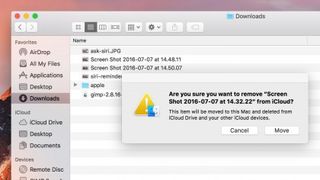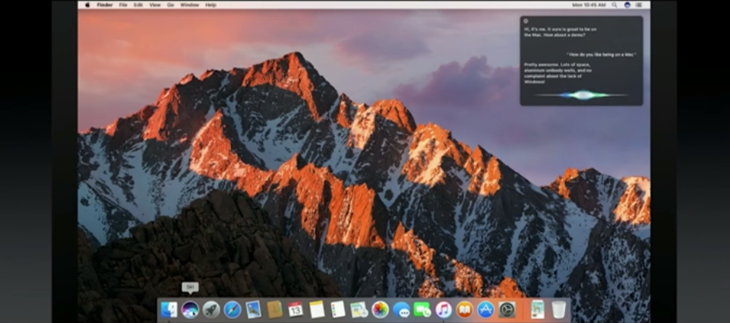

- #Macfusion alternatives for mac os sierra install#
- #Macfusion alternatives for mac os sierra drivers#
- #Macfusion alternatives for mac os sierra driver#
- #Macfusion alternatives for mac os sierra android#
- #Macfusion alternatives for mac os sierra windows#
I think the reason why this project was designed to implement FUSE as an NFS server is because apple doesn’t have an appropriate API. The IOUserBlockStorageDevice API appears to be designed for basic block devices like a thumb drive that read/write sectors and that’s all.Ĭonsider that FUSE is not a block device but a file system. I see that but that API is extremely limited. Native support for FUSE everywhere would be a godsend!Īh. I’ve been wanting to do this for years but support for open file systems is lacking. It would be extremely useful to be able to mount all my network file systems from all my devices.
#Macfusion alternatives for mac os sierra android#
And android too!! It just seems like 3rd party file systems are not a priority for any of these companies.
#Macfusion alternatives for mac os sierra windows#
I’ve long wanted microsoft to support FUSE on windows too. Too bad Apple doesn’t provide an explicit API for alternative filesystem support, considering they are apparently discouraging kexts now. Does the NFS implementation on macos do client side caching? If so it could certainly skew results too. This would place more stress on the FUSE implementation itself rather than remote network file systems. To test FUSE’s own overhead it might be best to mount a loopback file system with minimal overhead and reading/writing many small files (as opposed to just one big file). They reference sshfs, and I wonder if that’s how they tested it? If so I would think that might be the bigger bottleneck rather than FUSE itself. Is anyone here willing and able to benchmark it? I’m curious about that myself, but unfortunately there was no benchmarking data or indication of how benchmarking was done. I was pretty surprised when they mentioned it is faster, but sounds good. But I was fed up and it pushed me towards open platforms.
#Macfusion alternatives for mac os sierra drivers#
Interestingly I faced the exact same conundrums with windows file system drivers and considered the same kind of hacks there. Going through NFS is in no way ideal, but it may be the best option in light of apple increasing the obstacles for community supported kernel drivers. However there may be obstacles in reaching the ideal solution, which seems to be the motivation for this project.
#Macfusion alternatives for mac os sierra driver#
A kernel driver can clearly can do everything the NFS driver and more. Well, the ideal solution really is a kernel driver assuming there weren’t other barriers at play. “The point being this is not an ideal way to implement FUSE.”

while seemingly more complicated, works better. Would that be the ideal solution? That was how it worked before – not done by apple but nevertheless a s a part of the kernel. I keep telling osnews to put this in the site FAQ. How can I quote here the way you did? Unable to find this option….
#Macfusion alternatives for mac os sierra install#
It’s a hack that exists to mitigate restrictions that have made it hard to install & use a proper FUSE kernel driver. The point being this is not an ideal way to implement FUSE. Consider if there are changes to NFS implementation or policy (say authentication/security/crypto/etc) these can potentially impact FUSE file systems that have absolutely nothing whatsoever to do with NFS. While this link is not related to this project or macos, it does highlight another problem introduced by having FUSE atop NFS model… įUSE becomes dependent on an unrelated network file system and its changes. Say we want to implement memory mapping or some other feature that doesn’t map to NFS, well too bad because now everything has to be hacked in terms of NFS packets. Requiring FUSE to be underpinned by NFS further limits what our FUSE file systems can do.

This creates a significant overhead over read & write syscalls that typically would have been extremely efficient with a kernel driver that can read/write process memory directly. This necessitates the generation, buffering, and parsing of TCP packets. KERNEL->NFS DRIVER->TCP SOCKET->FUSE NFS SERVER EMULATION->USER SPACE FILE SYSTEM Moving the FUSE driver into userspace is a hack at best and it looks like this: KERNEL->FUSE KERNEL DRIVER->USER SPACE FILE SYSTEM However barring an official apple implementation of FUSE, the next best thing would be a 3rd party kernel implementation as follows: Ideally there would be a direct path from the FUSE API to the kernel, maybe even one implemented by apple themselves. But now consider how FUSE itself needs to be implemented to hook up file systems into the OS. All FUSE file systems will be implemented in userspace using this API. The entire goal is to create a userspace API for file systems. Take a step back and think about what FUSE does in the first place. In this case it is clearly the better solution: this should not be in the kernel-space. Not the same functionality but actually faster, better support for file-locks and better stability.


 0 kommentar(er)
0 kommentar(er)
